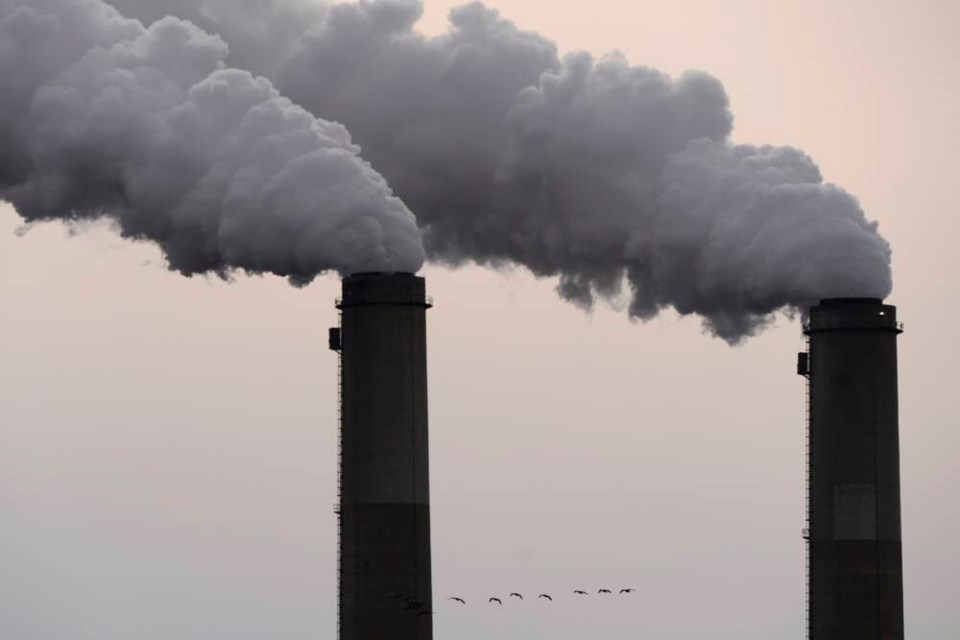Ensuring the stability of society and the wellbeing of its members means ensuring that the ecosystems that support us are in good shape — and they are not

Some may consider Prime Minister Mark Carney to be an economic guru, but he is either ignorant of or chooses to ignore two fundamental truths in his rush to build the nation by growing the economy.
First, as the World Wide Fund for Nature eloquently put it in 2014: “Ecosystems sustain societies that create economies. It does not work the other way around.” Second, as Kenneth Boulding, a former president of both the American Economic Association and the American Association for the Advancement of Science, stated way back in 1973: “Anyone who believes exponential growth can go on forever in a finite world is either a madman or an economist.”
So ensuring the stability of society and the wellbeing of its members means ensuring that the ecosystems that support us are in good shape — and they are not. A couple of centuries of industrialism, and 80 years of massive and rapid economic growth since the Second World War — referred to as ‘The Great Acceleration’ — have taken their toll, pushing us close to the cliff edge.
Let me be clear what I mean by the cliff edge. Earth scientists have just concluded that we have crossed the seventh of nine planetary boundaries they have identified. The latest is ocean acidification, sometimes called “osteoporosis of the sea” because it thins the shells of calcifying species such as corals, oysters, mussels, clams, and pteropods (tiny sea snails). It has also been called the “evil twin” of climate change because it too is largely the result of carbon dioxide emissions.
In fact, a study published this month inGlobal Change Biologyfinds, based on revised and updated models, that the entire surface ocean crossed that boundary in 2000. As a result there are “significant declines in suitable habitats for important calcifying species,” particularly in the polar regions.
Add to that recent reports on catastrophic declines in insect species, even in protected forest areas, and in the birds, frogs, lizards and other species that eat them. An article in theGuardianthis month quotes a prominent US entomologist, David Wagner, who documents insects all over the USA. Speaking of a recent trip to Texas, he said: “There just wasn’t any insect life to speak of. I want to do what I can with my last decade to chronicle the last days for many of these creatures.”
Climate change underlies both ocean acidification and insect declines — and climate change is rapidly worsening. We see the evidence of this in Canada, with the early arrival of wildfires and extreme heat events in June this year. In May, the National Oceanic and Atmospheric Administration reported, global average concentrations of carbon dioxide exceeded 430 parts per million for the first time in 30 million years. A recent article on indicators of global climate change found human-induced warming has been increasing at an unprecedented rate in the past decade, due to “greenhouse gas emissions being at an all-time high” this decade “as well as reductions in the strength of aerosol cooling.”
And yet, Carney and his government ignore all this, egged on by corporate spinmasters who are using U.S. President Donald Trump’s dangerous actions as cover to push for the reversal of health and environmental protections and respect for the rights of Indigenous people in the name of ‘nation-building’.
The evidence of Carney’s ignorance — or ignore-ance — is clear in the mandate letter he gave to his Cabinet on May 21. Not only is the environment not one of the seven priorities for the government, there is not a single use of the word “environment” anywhere in this letter, and only a passing reference to climate change right at the end: “We will fight climate change”. Big hairy deal.
Nor is there any reference to wellbeing or quality of life in the mandate letter, which is quite ironic, given that Carney has established a new Cabinet committee on quality of life and wellbeing. Yet both are threatened by further harm to Earth’s natural systems, and by riding roughshod over Indigenous peoples’ rights and health and environmental protections.
The unseemly rush to further exploit nature, and especially to make Canada a conventional energy superpower, merely accelerates us towards the cliff edge.
Dr. Trevor Hancock is a retired professor and senior scholar at the University of Victoria’s School of Public Health and Social Policy.
>>> To comment on this article, write a letter to the editor:[email protected]